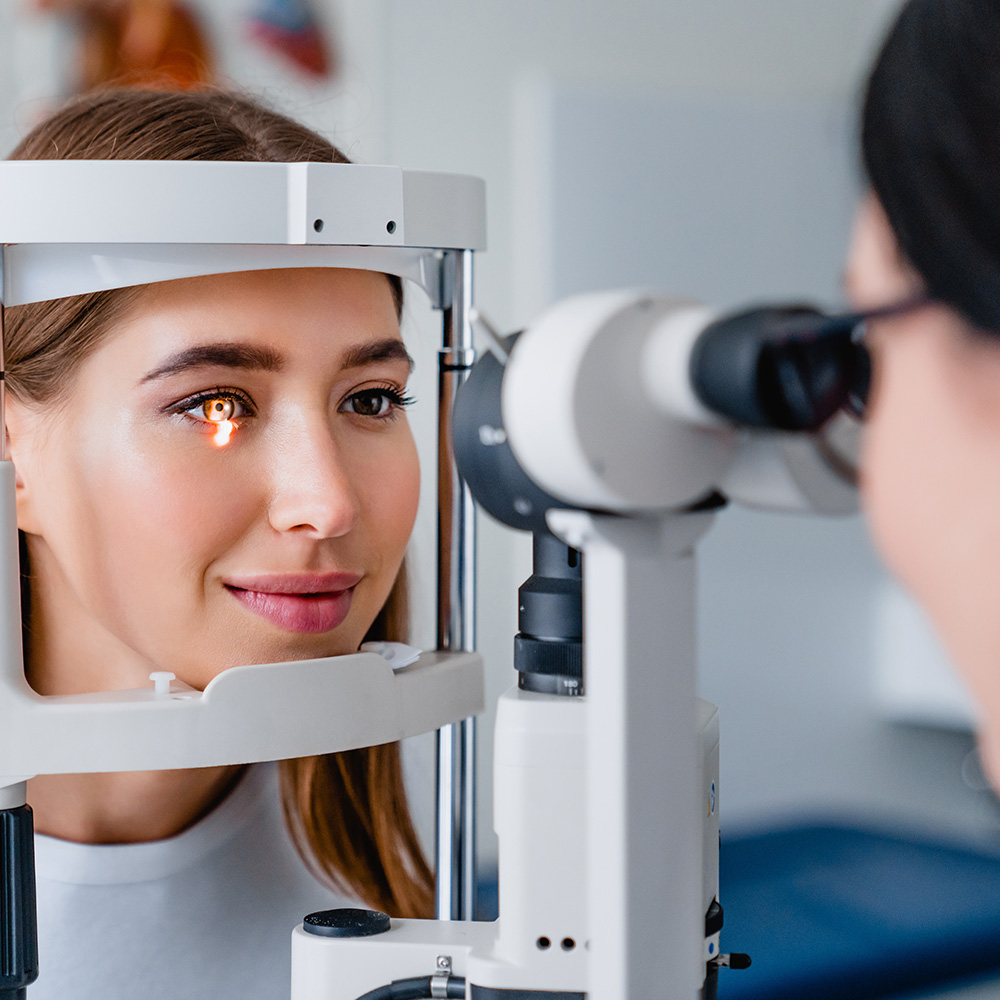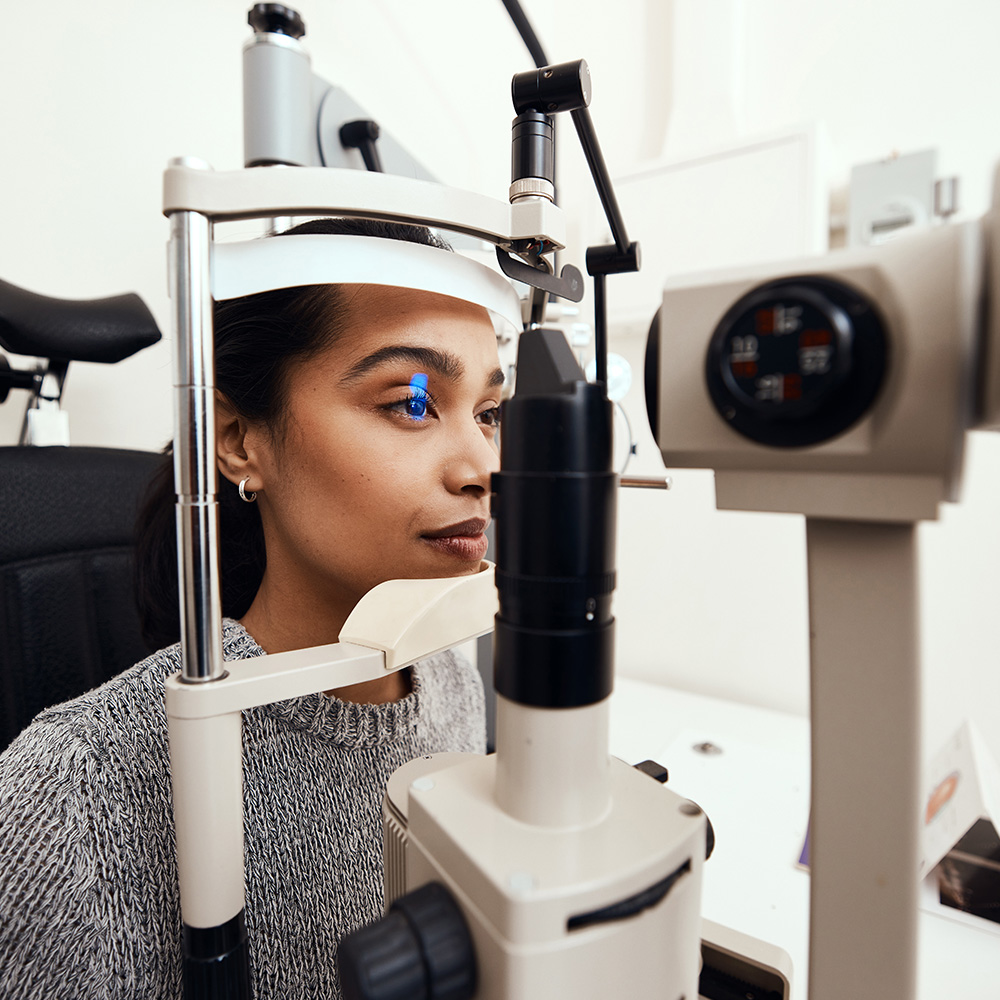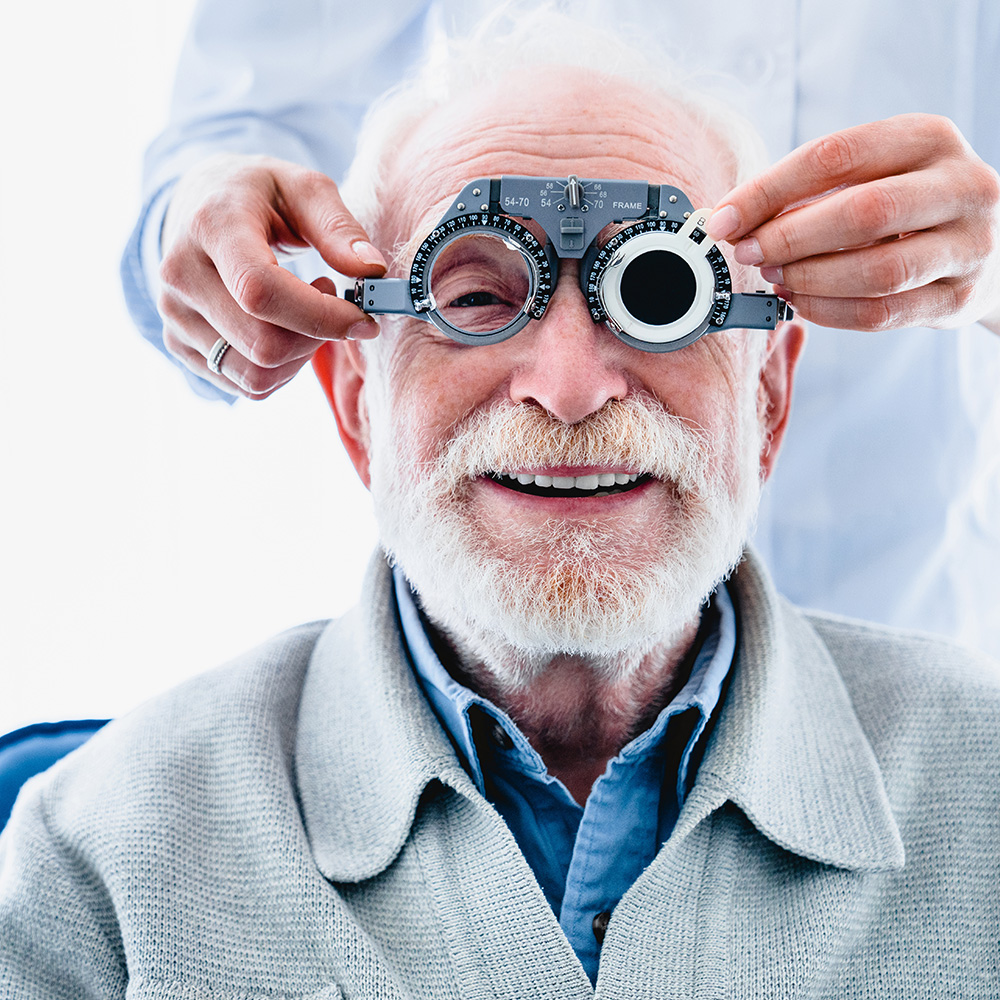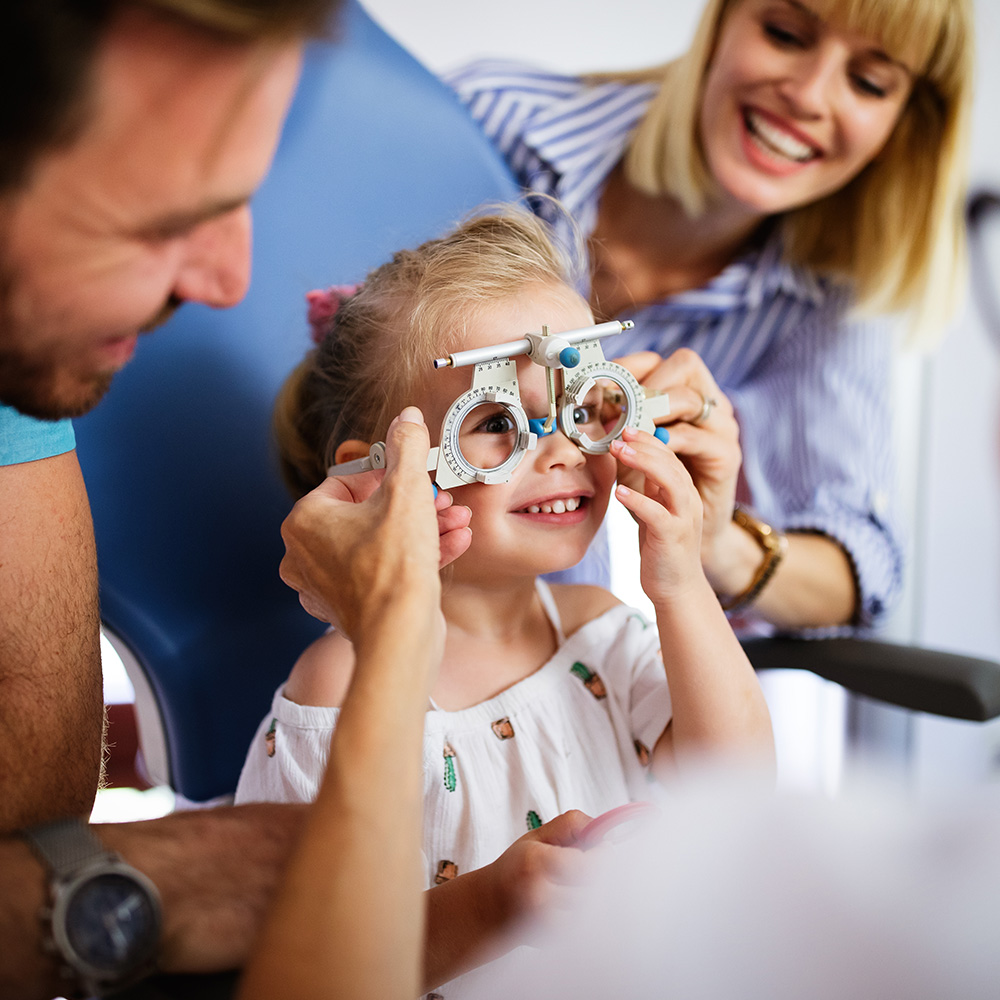Eye Exams
For The Whole Family
At Millcreek Vision Care, we’re passionate about providing exceptional eye care for the whole family. Our dedicated optometrist tailors comprehensive eye exams to the unique needs of each age group, from kids to grandparents. A gentle and thorough approach makes the eye exam experience comfortable and informative for everyone.
We understand the importance of early detection and regular monitoring, so our family-focused eye exams are designed to help us stay ahead of any potential vision problems. We’re committed to providing your family with the best possible eye care, helping you enjoy clear vision for life.
Update Your Prescription
At Millcreek Vision Care, we know that regular eye exams are the key to maintaining optimal vision and ensuring that your glasses or contact lenses are always working their best. As our eyes naturally change over time, our experienced optometrist conducts routine eye exams to track these changes and ensure that your prescription is always accurate.
By regularly reviewing and updating your prescription, we make sure that your glasses or contact lenses provide the clearest, most comfortable vision possible. We're committed to helping you see your best, so don't wait to schedule your next eye exam today!


What To Expect During an Eye Exam
During a regular eye exam, you can expect to:
- Talk about your medical history. Your eye doctor will ask about any changes in your medical history since your last exam, and if this is your first time at the practice, they will ask for a complete medical history, including a list of medications you are currently taking and any vision problems your parents may have experienced.
- Undergo a series of vision and eye tests. These tests will help your eye doctor determine the overall health and quality of your vision, as well as check that your current prescription glasses or contacts (if you have one) is still meeting your vision needs. Your eye doctor will also check your eyes for signs of any potential vision problems or eye diseases.
- Have your pupils dilated. In many cases, your eye doctor will use special drops to dilate your pupils so that they can better see the structures of your eye.
- Discuss your eye health and vision with your eye doctor. Your eye doctor will discuss the current state of your eye health and vision and may prescribe vision correction in the form of eyeglasses or contact lenses. They will also discuss any health concerns or possibly serious vision complications, and the next steps you need to take to preserve and protect your sight.
Eye Exams For Every Stage of Life
The American Optometric Association (AOA) recommends annual eye exams for everyone, regardless of whether you wear glasses or contacts. Even if you have perfect vision, eye exams can detect early signs of eye disease, leading to better treatment outcomes.
People with diabetes, high blood pressure, and other chronic conditions should be especially vigilant about getting regular eye exams. These diseases can damage the eyes and lead to vision loss.
As we age, the risk of eye disease increases. That's why everyone over the age of 60 should get an eye exam every year. And if you're over 40, it's a good idea to have your eyes checked every one to two years for common age-related eye problems, such as presbyopia, cataracts, and macular degeneration.


Kids Eye Exams
Experts estimate that up to 25% of school-aged children have vision problems, but many go undetected. The American Optometric Association (AOA) recommends that all children have their eyes examined at six months of age, three years of age, and again at the start of school. Children without vision problems or risk factors should continue to have their eyes examined yearly throughout school.
Children with existing vision problems or risk factors, such as premature birth, developmental delays, turned or crossed eyes, family history of eye disease, history of eye injury, or other physical illness or disease, should have their eyes examined more frequently.
The AOA also recommends that children who wear eyeglasses or contact lenses have their eyes examined at least every 12 months or according to their optometrist's instructions.
